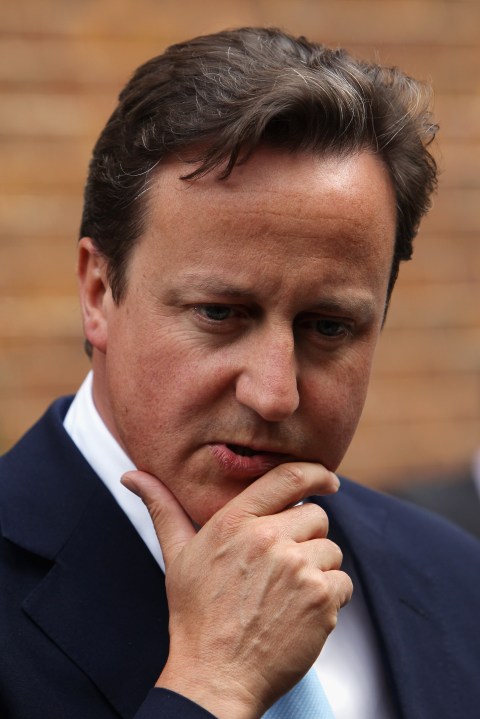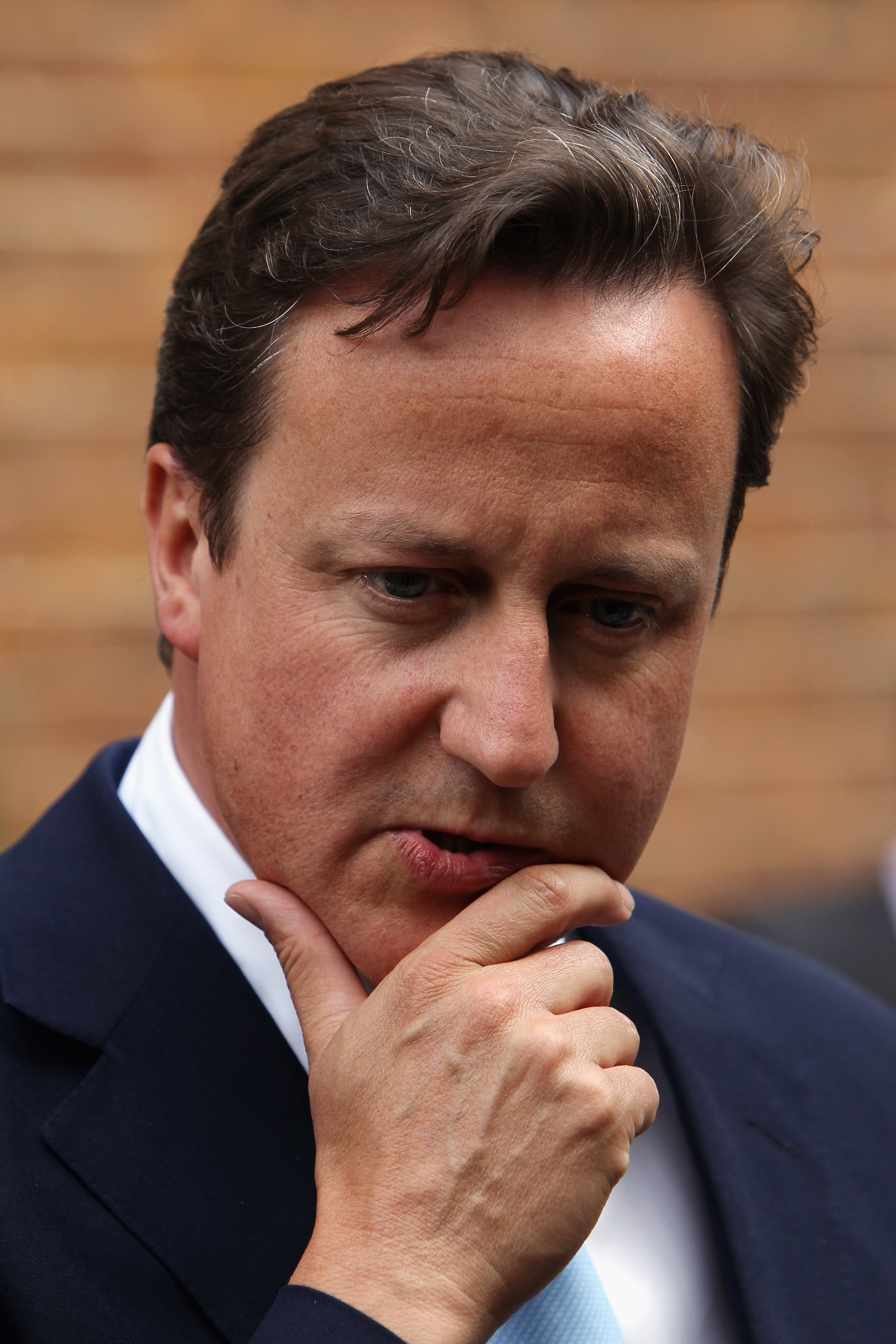 As James says, it’s been a day of high passions here at The Spectator. He feels strongly that many of the
problems in Britain are societal, and require a cultural shift. Maybe so. I disagree with James when he says a Prime Minister’s role is to “lead society”. I disagree. We pay him to run
the government, not offer his advice (or, worse, condemnation) on how society is running itself. Sure, society is shaped by government incentives. Cameron can fix these. But shaping society by
exhortation is not what we expect of limited government. Fundamentally, it confuses what I see as the natural pecking order. In Britain, the people pass judgment on politicians. Not the other way
around.
As James says, it’s been a day of high passions here at The Spectator. He feels strongly that many of the
problems in Britain are societal, and require a cultural shift. Maybe so. I disagree with James when he says a Prime Minister’s role is to “lead society”. I disagree. We pay him to run
the government, not offer his advice (or, worse, condemnation) on how society is running itself. Sure, society is shaped by government incentives. Cameron can fix these. But shaping society by
exhortation is not what we expect of limited government. Fundamentally, it confuses what I see as the natural pecking order. In Britain, the people pass judgment on politicians. Not the other way
around.
Tim Montgomerie is on James’ side, and chastised me
yesterday. The PM should discuss moral issues, Tim says, and should not be afraid from doing so just in case there are some CSA-dodgers in his Cabinet. All three of us are strong supporters of
Cameron’s pro-family agenda but, to me, it’s a practical issue — not a moral one. It’s about how you talk about it. The phrase “Big Society” has already given one
very good idea a bad name. I’m worried that if Cameron starts to deliver sermons about people’s behaviour, he could contaminate his vital pro-family agenda. It’s about where you
draw the line, and I’d draw it at passing moral judgment. Here are Cameron’s words:
What puzzles me is the condemnatory language. Cameron is not a censorious person — yet here he is, oozing moral certainty and urging Britain to treat “AWOL dads” as outcasts. The word “stigma” gives us the biggest clue as to what lies behind all this.“We need to make Britain a genuinely hostile place for fathers who go AWOL. It’s high time runaway dads were stigmatised, and the full force of shame was heaped upon them. They should be looked at like drink drivers, people who are beyond the pale. They need the message rammed home to them, from every part of our culture, that what they’re doing is wrong – that leaving single mothers, who do a heroic job against all odds, to fend for themselves simply isn’t acceptable.”
The drink driving example is one that Oliver Letwin uses to illustrate the power of stigma. You can make it illegal, he says, but it only started to go down when it became socially unacceptable. In Charles Murray’s work, he says the main dissolvent of family life in America was the collapse of the stigma around having an illegitimate child. So the idea of stigma has loomed large in Conservative social thinking. The Cameroons, I suspect, believe that they should try to change society not by laws of government, but by creating a stigma. And that is why Cameron is suddenly talking about AWOL dads like an Old Testamant preacher. He wishes to create a new stigma, and use the power of his office to do so.
I have three objections. First, it only works if the Prime Minister is seen as a role model or superstar. It’s no fault of Cameron’s, but the British regard their political class with cordial contempt. Cameron won’t and can’t change society by exhortation. There was a phase where Cameroons believed that, even in opposition, he was changing Britain: putting global warming up on the agenda, stigmatising WH Smith for offering cut-price chocolate, stigmatising retailers who sell over-sexed clothing. They were fascinated by the idea that, in this age of 24-hour news, the politician can change the media agenda — and, by inventing a stigma, change society thereafter. It doesn’t work. WH Smith has gone back to flogging Galaxy bars at knockdown prices.
But, fundamentally, I just don’t think you can condemn people as easily as Cameron does. We can all talk about “AWOL dads” in the abstract. But, in real life, situations are complicated — almost always, too complicated for other people to judge. I know a runaway dad who had a breakdown, and left his job and family at the same time. It was tragic. Is he a candidate for the “full force of condemnation?” Some marriages break down so badly that the mother doesn’t want to see the dad, or lets him know that any money he sends will be spent on holidays with her new boyfriend. As Tolstoy said, each unhappy family is unhappy in its own way. I, for one, would not feel able to cast that first stone. As Tim admitted in his blog, it’s very difficult to define a “runaway dad”. I just don’t believe that you can make black-and-white judgments in the way Cameron is asking us to.
Finally, I think politicians of all parties should be judged by what the do — not by what they say. If Cameron is sincere in his determination to address Britain’s chronic problem of family breakdown, he should take the Hippocratic oath: “first, do no harm”. Right now, his government does plenty of harm. Its welfare robs the low-income family of its economic function. As Charles Murray has noted in his research, the man often feels emasculated — he’s not needed financially. It may sound unromantic, but finance is often the glue which holds families together. And, right now, Cameron’s government paves a gilded road to family breakup and welfare dependency. Cameron will change this, and in hiring IDS he has shown the force and sincerity of his determination to fix this scandal. But I’d save the finger-wagging until then.
All of this is strange, given that I so strongly support Cameron’s family agenda and still consider him an outstanding and potentially transformative Prime Minister. And stranger still, because we debate all manner of topics in 22 Old Queen St but this one has got our blood temperature rising like no other to date. At the very least, Cameron can say that he got us all talking.
UPDATE: As Tim tweets, I should have acknowledged a slip in the first version of my post yesterday: I referred to “absent” fathers, whereas Cameron referred to “runaway” fathers. I corrected the post yesterday. But how to define a “runaway” dad? If CoffeeHousers can offer a firm definition, I’d be very interested.








Comments